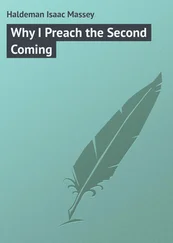No phone to call, so I came here to see him myself. You see, his mother passed this year and I worry over the boy.
The principal doesn’t stand up. Magnus Axahoes’s father standing there in his blue jumper isn’t anybody he has to get up out of his chair for. “These farm boys run away all the time,” the principal says. “What can I do? Alert the constable every time?”
The oldest and weakest cattle began dying in the middle of June. Our only rain had been that single storm. Dikeledi in the rain, and now nothing. Everybody said it was never a surprise. How could it be a surprise? Still, it was odd how you went along, the days opening, the days closing, and then one afternoon it was as if the grass got a crack more brittle and you knew. You knew the worst wasn’t coming tomorrow, it was here. Everybody knows when a drought ends, but when does it begin? The cows went from quietly starving to actually dying, and Theofilus had to go to Karibib for fodder to keep them alive another day. He couldn’t water them fast enough.
We voyeurs wanted to watch their suffering up close. Their bulging eyes, their slowly whirling pupils. I had always thought cows have sad eyes. The one thing I know now is that this is conceit. That their eyes hold some sort of sorrow seems beside the point. They died with them open.
Out of mercy, Theofilus shoots a few of them that are no longer able to stand. Their meat’s all gone, but still he wants to save them the indignity of having their carcasses picked clean by the already circling, murderously patient vultures. How do they smell death before it even happens? We go out there with some boys and watch. Small bonfires light the veld. Petrol and smoke line our nostrils. The cows burn down to bone.
Morning meeting in eight minutes. Vilho gongs a pot to make certain, because aren’t there too many days now we sleep through the third triangle? Pohamba’s waking coughs, his cursing the universe that made Vilho’s mother, the foundry that made the pot, the God who gave us dreams and then wrenched them away from us for fucking morning meeting. Rarer times, I beat the first triangle. On my knees, in the chill, watching out my torn screen the blue as it rises above the shoulders of the mountains.
She was pretty, a little nasty-mouthed, but pretty. Tall, with a bullet-looking head. Standing west of Karibib with a suitcase. She didn’t wing her arm out when I drove by. Waiting on something better. They’re always waiting on something better while I work. But I stopped anyway, and she walked up, and I leaned over and opened the door. She didn’t say anything and didn’t get in. I didn’t say anything either. What would I? I leaned over to close the door. You’re getting in, you’re not getting in. What difference does it make to me? She put her hand on the door, and my eyes said to her, In or out? Her hand on the door like I’m the one in the road begging a lift. Where are you going? she said. I pointed up the road. How far? she said. I have to answer questions? Upington, I said. Tonight. Her hand was still on the edge of the door. All right, she said. She hoisted her suitcase and expected me to take it. I let the thing stand there in the air above the seat. She put it down on the seat and climbed up. I jerked my thumb. There’s room for it in the back, and she, with her knees on the seat, lifted it and put it back there. Then she sat with her hands folded like a nun. She wasn’t a nun. She looked straight ahead out the windscreen. I don’t play the radio. I like to think when I drive. Thirty, forty kilometers, she didn’t say a word. Up and over the hills and straight up to the checkpoint before Windhoek. At the checkpoint she didn’t take out her card and they didn’t ask her to. That’s how it is now. Six times in a route now I show my card. The other day they fined me two hundred rand for my tires. Cop measured my treads with a ruler and said I was in violation. Straight past Windhoek on the underway, and she’s so still it doesn’t look like she’s breathing. Maybe she thought if she breathed she’d be giving me something. I got used to it. I feel her there and don’t feel her, and listen for her breathing and don’t hear it. I do the three hundred k’s to Mariental, where I stop for petrol. When I get back in the cab, there’s thirty rand on my seat. I look at it awhile and then get in and sit on it. She doesn’t say anything, but I see her breathe. Outside Horncranz, I ask her if she has a name, and without taking her eyes off the glass or moving her nasty little mouth, she says she does. Outside Gibeon, I said, Do you ever tell people what it is? and then she did tilt her head and she did look straight at me. And all right, I want to touch her, not grab her, just touch her. And I look at her and she knows it. Stop, she says. Here? A flat stretch of tarmac south of Keetmans, at least two hundred more k to the border. Nothing, no dorp for sixty, seventy k in either direction. An hour to dark. You want to get out here?
Here.
The Russian loves recalling life, but he does not love living.
— CHEKHOV
12 DECEMBER 2002
Kaplansk,
Excuse a long silence. We haven’t forsaken you. Your letters have not gone unread, only unanswered. Is there a word for letters like these? Not dead letters. Mutters on the wind? We’ve heard you, is what I’m trying to say. Don’t fear. We do think it’s high time for you to leave Cincinnati and see the world. Did you see so much of it the last time you ventured forth? Why don’t you at least cross the river and visit Kentucky?
Of this plague you refer to, my Antoinette merely says, Who are we to question His will? Then, of course, she deliberately, and with all her remaining strength, tries to thwart that very will. Often she rides into town with the priest and feeds the sick. I myself read the newspapers and wring my hands, weep, but open a can of beans and feed the sick? Never. What sort of man does this make me?
Our Tomo continues to be a hellion, but a kind one. He even writes poetry now, though I confess it is not of the sort that moves me. Teacher Pohamba has taken it upon himself to be another father to him. This has yielded, as you might expect, mixed results. The boy no longer seems to remember his mother, which I suppose is natural.
Everyone greets you.
One of these days expect a treatise on the practical uses of lamentation. I am preparing an anthology you may find interesting.
Affectionately,
O. Horaseb
When I run out of remembering, I sit here and read. I read haphazardly, finish nothing, collect much. I like this library. There’s a lot of light. It’s mostly quiet, with the exception of the guy who snores the liquidy snores. I’m talking about the Cincinnati Public, downtown branch, second floor, near the periodicals, the room with the puffy chairs.
I’ve come across another story of walking. I’ve found it in a footnote. It’s 1919 and the dawn of a new era. A group of men are hired to work in the diamond fields on the coast. They are not slaves; they are contract laborers. It’s only that the contract says they’re not free until their employer signs a paper. They work sixteen hours a day in the sand and wind. One night, one of the men makes a calculation that they can make it to a mining town called Rosh Pinah after only a day and a half of walking. All we have to do is follow the dry river. Who’s with me?
Читать дальше












